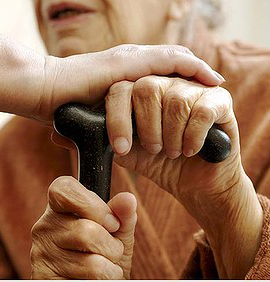WHO reports on age discrimination
 The World Health Organization (WHO) has released its first report on what could be the most common form of discrimination in the world - ageism.
The World Health Organization (WHO) has released its first report on what could be the most common form of discrimination in the world - ageism.
The report finds one in two people globally hold moderately or highly ageist attitudes.
The report includes a survey of over 83,000 people from 57 countries around the world.
It suggests that the highest prevalence of ageism is in low-income and lower-middle-income countries, for example India, Nigeria, and Yemen.
Ageism is at its lowest prevalence in higher-income countries including Australia, Japan and Poland.
In Europe, a third of older people report being a target of ageism.
The WHO defines ageism as using age to categorise and divide people in ways that lead to harm, disadvantage and injustice.
Health care rationing by age is one of the major sources of disadvantage.
The report includes case studies from five medical centres in the United States, which show how age can lead medical staff to withhold life-sustaining therapies for patients with illnesses with high mortality rates.
Ventilator support, surgery and dialysis all became less likely as the patient's age increased.
The rate of decisions to withhold ventilators increased 15 per cent with each decade of age; while surgery was withheld by 19 per cent per decade.
The COVID-19 pandemic has exposed further discrimination against older adults, causing older people to lose their jobs and face exclusion from COVID-19 treatments in some cases.
Additionally, some 15.7 per cent of older people - almost one-in-six - report being victims of abuse.
The WHO has called for new policy and law changes, education and improved intergenerational contact as ways to break down the stigma surrounding age.
If nations took up the charge to address ageism, there could be some serious economics benefits.
The WHO report quotes an Australian study that found that if 5 per cent more people aged 55 or older were employed, it would bring an extra $48 billion into the national economy each year.








 Print
Print